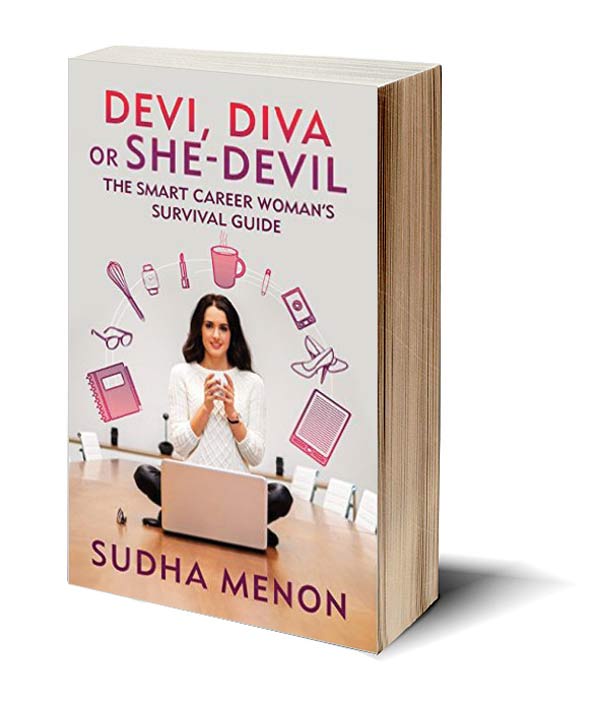
I started working when I was 20, I'm 50 now. I've been a journalist, a writer, a wife and a working mother. I've realised that as we juggle roles on a daily basis, we gather labels along the way. The woman on the home front is typified as the domestic devi; the woman who refuses to part with her independence is dismissed as a diva; and a woman in position of power is dubbed She-Devil the minute she means business. I wanted to speak to women who have struggled with that experience, and come out with powerful stories. I wanted the women reading this book to know they are not alone.
I spoke with women from diverse backgrounds. Those who live ordinary lives but have extraordinary journeys, as well as those who've made a mark in their chosen fields such as Lilette Dubey, Farah Khan, Mary Kom, Honey Irani and others. Whatever their background, these women are all connected by the common thread of their struggle in juggling multiple roles, and sometimes, being judged for it. The burden of expectations, motherhood-related guilt and their eventual mastery over it all stood out in all the stories.

It doesn't have to be judgment at work alone. Career women are routinely judged within the family. A small thing such as the inability to make it for a baby shower or family lunch because there is a deadline to meet at work, fetches you a label. A woman putting her work ahead of social engagements would be frowned upon, even by other women. As a writer, I have the hardest time convincing my friends and family that just because I work from home does not mean I can drop my work and go shopping — that I have a legitimate job!
We've all been there. When world champion boxer MC Mary Kom had to leave behind her newborn twins to be at training camps, she fought crippling guilt. One time, an insurgency-related supply shortage to her hometown of Manipur meant she had to make frantic calls to ensure food reached her babies. But giving up on her dream was never an option; Kom also spoke candidly about the support she had from her father-in-law and husband.
Most women I spoke to had very strong male enablers. Leena Nair talks about how as a young HR personnel at Hindustan Unilever, she could focus on her role at work in some of the company factories on the outskirts of Mumbai because her husband decided to be the one to commute to Bombay. She is presently global head of HR at Unilever.
Screenwriter Honey Irani, who at one point was unsure of her own writing, urges women to take ownership of their strengths. That ownership is very important.
Of course. That has led to another workshop called Writing with Women, where women, often not comfortable with baring their vulnerabilities in a mixed group, began to discover their shared experiences and unique voices. When women write their stories, they write about the social milieu, gender equations and their status in society.
My mother's. I didn't know until very recently that my mother was one of the first girls in her village in Kerala to study in a convent boarding school. I am currently helping her write her story and am fascinated by some of the characters in it—a spinster aunt who traveled alone from our ancestral village in Kerala to Mumbai in the late 1930s to study nursing, make a career and change our family's destiny.
Nisaba Godrej, executive director of Godrej Consumer Products, puts it nicely when she tells working women to not expect immediate results of hard work. Find your passion, put in the proverbial ten thousand hours, give it everything you have. Every other calling, professional or personal, will fall into place.